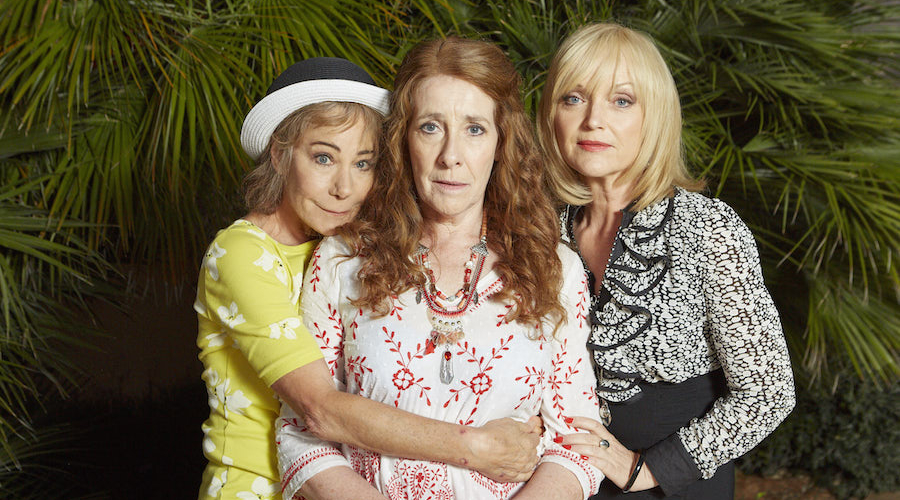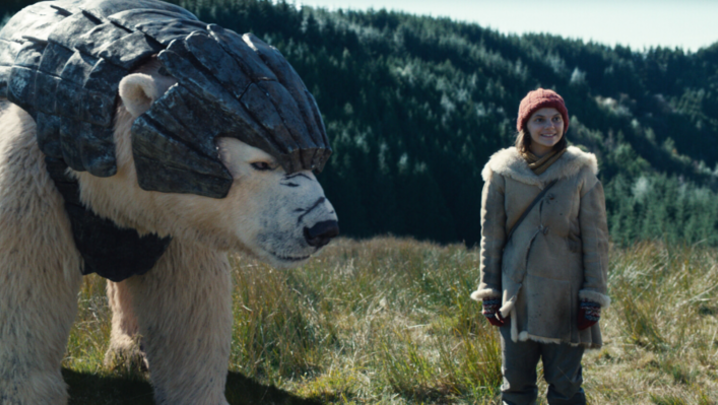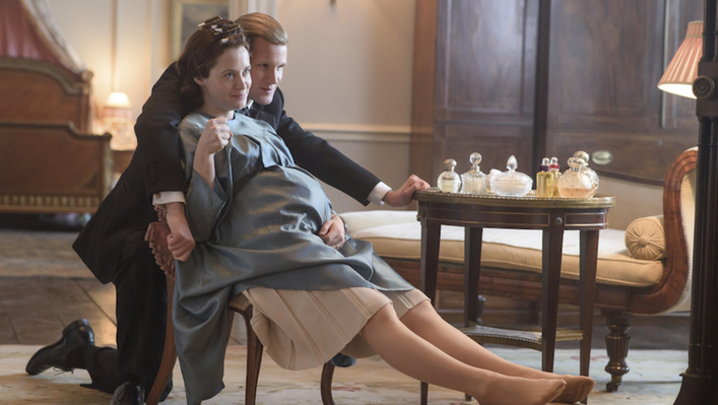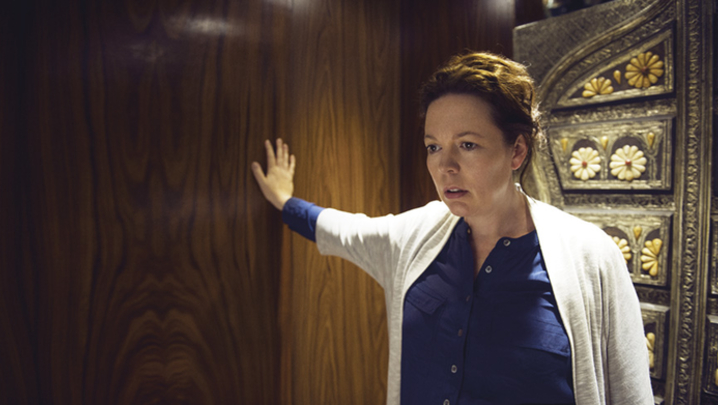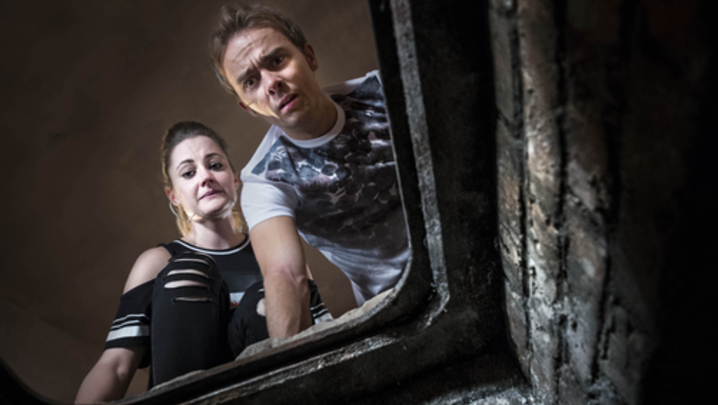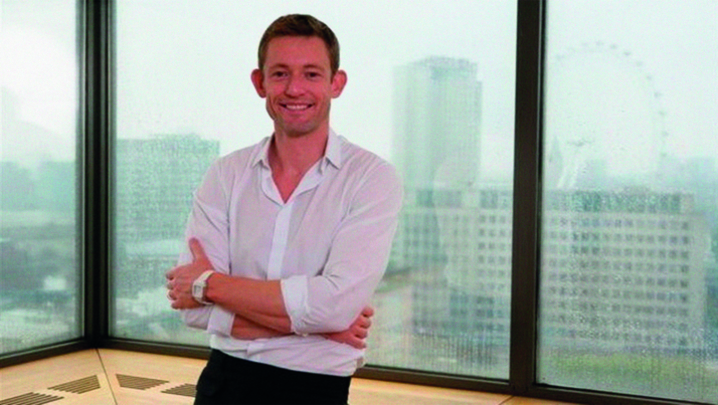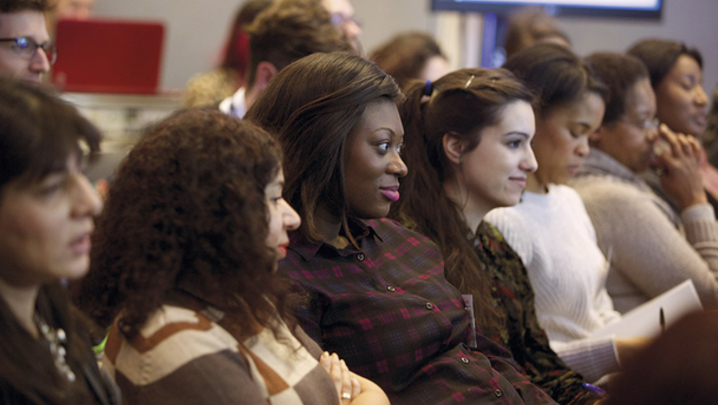A stellar RTS panel poses some tough questions for the men who still dominate TV. Steve Clarke takes notes...
The debate over women working in television has come a long way since 1986 when Coronation Street was an all-male cabal. In those days, all the female characters were written by men. Yet, as recently as 2015, when Red Productions unveiled the latest run of ITV’s trail-blazing cop show Scott and Bailey, the response of male journalists could be relentlessly sexist, revealed actor Lesley Sharp.
She recalled: “It was really irritating when we started to promote the show and journalists would ask you, ‘Two female cops?’ Then, you’d get that awful chestnut, ‘How does it feel to play a strong woman?’ Then, they’d ask about having female directors.
“Gasp! If it were male actors would you be asking about a male director? You’ve got to start moving through that. The bigger point is that it’s not just our industry, unfortunately, it’s enmeshed in our society. Fingers crossed, we’re digging away at that.… It’s crazy, it’s 2015 and we’re still being asked those questions. That’s nuts.”
Sharp was one of the panellists at a timely RTS debate, ostensibly about opportunities for older women working in television – as writers, actors and programme-makers – but which inevitably strayed into the still troubling question of how TV treats women generally. BBC gender pay gap, anyone?
Yes, progress has been made – especially in roles for older women – but, as this engaging discussion showed, much more needs to be done. Judged by what was said, one area that needs urgent attention is how female directors can sustain a career in TV. However, the days of TV drama as an exclusively male preserve have thankfully disappeared, along with white nylon shirts, cassette tapes and Enoch Powell.
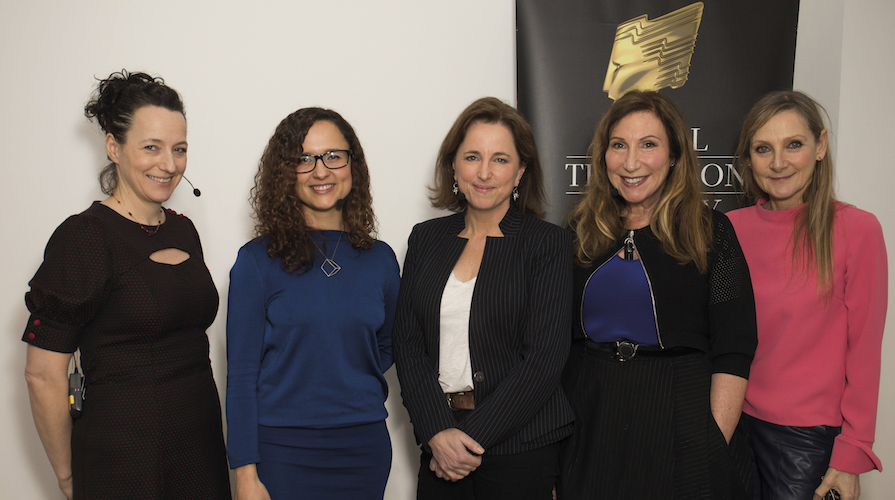
(Credit: RTS/Paul Hampartsoumian)
Kay Mellor, whose TV hits include Band of Gold, Fat Friends and Playing the Field, recalled that, in 1986, when she first worked on Coronation Street, Britain’s most famous TV soap was firmly in the grip of men, invariably wearing dark suits.
“Many of the Street’s most iconic characters were women but they were all written by men. I went into that environment and I remember going, ‘Wow, all these older men, these great female characters are their alter egos [audience laughter].’”
Mellor said that, when Sally Wainwright joined the soap’s writing team, “she was afraid of opening her mouth and pitching a story because she was frightened that someone would shout her down.”
She added: “I remember pitching a story about Shirley, a great woman of colour, who was Curly Watts’s other half. They went: ‘We’re not interested in Shirley, we’re interested in Curly.’”
More than 30 years later, Wainwright and Mellor are both big players in British TV drama. Mellor’s latest series, ITV’s Girlfriends, commissioned by a female head of drama, Polly Hill, is the story of three women approaching 60.
“I expected ITV to say, ‘Can they be fortysomething?’ but it didn’t happen.…At one point, I thought they could be pushing 70. Nobody put up a barrier.”
So it would seem that TV is finally embracing – possibly even wholeheartedly – the wisdom of older women, once often described as women of a certain age.
It's about our medium catching up with what's happening in society
Mellor said that, with people such as Charlotte Moore at the BBC (where she is director of content) and Hill at ITV (head of drama) occupying powerful jobs, British TV had become more female-friendly.
While more stories based on the experiences of women over 40 are being told in TV drama, Manda Levin, an executive producer at UK drama specialist Kudos, wondered if these stories were being commissioned for the right reasons. “I think we have quite reactive and reactionary ways of choosing the stories we tell,” she said. “There’s been an awareness for a long time that there’s an older female audience for British drama.”
The problem was that this became a self-fulfilling prophecy in the way that Hollywood made more films aimed at young men because it saw more young men in cinema audiences.
However, the Kudos executive added, British TV had clearly changed thanks to its employment of more female writers beyond the ranks of Mellor, Wainwright, Heidi Thomas, Debbie Horsfield and Paula Milne.
Actor Lesley Sharp, who has sustained a top-end TV career for around 25 years, revealed that achieving this had often been difficult. She said that female actors were at the bottom of the TV food chain. They didn’t get to see scripts until these had been commissioned and revised.
“In essence, part and parcel of the job that I do is to sign up for a life of disempowerment,” said Sharp, whose TV hits include the previously mentioned Scott & Bailey, which ran for five series from 2011 to 2016.
She added: “It’s really hard, you have to be clever about what you do. There are certain things that you know tick boxes commercially and TV companies want to do because they will get a lot of viewers in.
“But you also want to do things that are maybe niche and have managed to slide their way through in spite of people not wanting to commission them.” It was these more edgy shows, the actor maintained, that often resonated the most with the British public.
Sharp said that she and writer Russell T Davies “have this joke that TV is regarded as the bastard medium. Film or theatre are where it’s at. Telly is in the middle and it’s this kind of broad church. You can fling any old bone on to it and they’ll gobble it up. But the truth is that TV is an extraordinary medium.
“We only scratch the surface of what it’s capable of with the kind of stories that we tell, regardless of the fact that we’re not serving the 50% of the population that are women.
“We are not creating enough interesting stories about women of a certain age in an intelligent, vital, energised way. A lot of the 50-year-old characters I see on TV I don’t recognise as being part of my age group. They are not like women I know. As an industry, we have to start catching up with what’s happening in society.”
TV is getting better at listening to its audience
Caroline Hollick, creative director at Red, suggested that the success of BBC One’s Last Tango In Halifax (produced by Red) had encouraged commissioners and broadcasters to be more open-minded about parts for older women.
Persuading the BBC to take the programme had, nevertheless, proved problematic: “When we first pitched that show we were told that the story was too small and the characters too old.” She added: “Things have shifted. I think broadcasters have started to realise that people have an appetite for seeing themselves reflected on screen.
“A lot of the people that are watching television are older. My kids watch Netflix but I think they will watch TV when they get older. TV is getting better at listening to its audience.”
As for the willingness of TV’s editorial decision-makers to greenlight more stories featuring older women, Sharp insisted that a further change in attitude was required.
“It’s about our medium catching up with what’s happening in society. Arguably, women have only had any proper kind of voice since the 1970s.”
The actor added: “We have to start to think about women in the same way that we think about men. We’re people leading difficult, tricky, complicated lives. The stories that get told about women should reflect that.
“Every script doesn’t have to have an older woman at the centre of it. It’s about intelligent writing. If you’ve got a story in which the central character is a man, make the female characters that are orbiting around him interesting and clever, not people who are there to be a facilitator, a mother, a social worker, a teacher.”
When Kay Mellor sets out to write, is she consciously trying to rebalance things? Or does she think, “I’ve got a story and I want to tell it”, asked the night’s chair, Jackie Long, social affairs editor at Channel 4 News.
“I was born into a household of women, who were always more interesting to me than men. I didn’t have a father figure in my household,” replied the dramatist. “I write about things that I care about. I don’t sit down and think: ‘I am going to write about three strong women.’”
She had always put women stage centre in her plays and dramas: “The character of Rose in Band of Gold was an older sex worker. I’ve been doing that for 20 years. We need to find and nurture more female writers.”
Manda Levin said that, from her perspective, the number of female writers working in TV today was “off-the-scale better”.
TV is a great place to be a woman
However, female stereotypes still persist in TV drama. Mellor highlighted one lazy one that irritated her – the woman who trips and falls while escaping: “How many times are you watching something and thinking, ‘She’s going to fall. There she goes now.’”
Yet, overall, when the panellists were asked to sum up, there was optimism about how far TV had travelled in its depiction of women (including older women) and the work opportunities that now exist in TV.
Caroline Hollick said: “TV is a great place to be a woman. I’ve never felt held back by my gender. But TV does need to reflect not just middle-class women.”
Levin stressed TV’s uniquely powerful asset: “We have in our hands the most potent tool of all – storytelling – which has the power to change hearts and minds. Television is the most egalitarian platform for storytelling. Everybody watches television. It’s not self-selecting like other art forms. It’s for us to write stories to inspire people to make it better.”
Sharp struck a more downbeat note: “The notion of older women being crucibles of power has disappeared from our society. We need to find ways of re-engaging with that.
“One of the great things about Scott & Bailey was that it was a depiction of two women of different ages – and that not mattering.
“They weren’t competing with one another in terms of the work structure or sexually. You often find that is a big dynamic in drama.
“We start empowering young girls by showing them what it’s like to be a really fabulous woman. Then, people will want to tell those stories.”
How to get more women directing
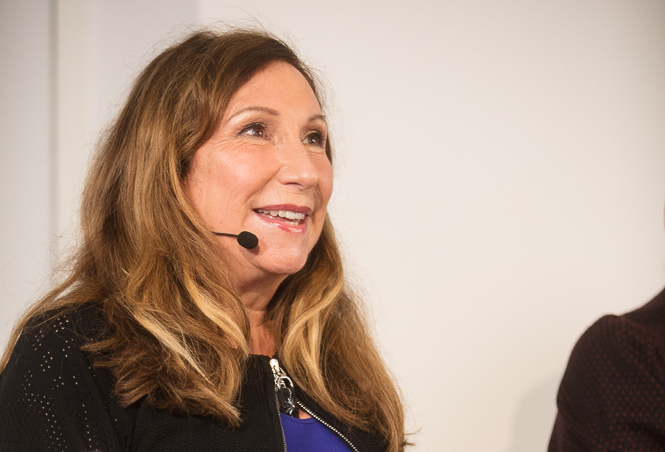
‘It’s a massive problem that we haven’t solved,’ said Kudos’s Manda Levin.
She added: ‘We’ve always had a lot of female producers and script editors because they’re roles where you can facilitate creativity and that’s quite an easy role for women to see themselves in. Writing is harder.…
‘Directing is different again – it’s standing up in front of a massive group of people, many of whom are men with technical skills. You’ve got to say: “I’m in charge, help me to realise my vision.” That’s really difficult for a woman.’
Kay Mellor said that one answer to this problem was to hire a female DoP and to nurture her.
One show that deliberately hired female directors was Red’s Scott & Bailey, in which seven out of the 10 directors were women.
‘People have to put their money where their mouth is and hire more women,’ said Red’s Caroline Hollick.
The skills required to be a successful director probably play to the strengths of a certain kind of very confident young man more than they do a woman, she added. ‘Female directors [are labelled] a bit mad, a bit chippy. Whatever you do as a woman, you can’t win – you’re too quiet, you’re too strong or you’re too pushy.
‘The only way it will change is if we hire great female directors that we love working with.’
Levin said: ‘We have to encourage them and tell them they can do it. An experienced female screenwriter once said to me: “When I meet potential directors, a man comes into the room and tells me why I should hire him, whereas a woman is very honest about her strengths and weaknesses.”’ She said she had seen this again and again.
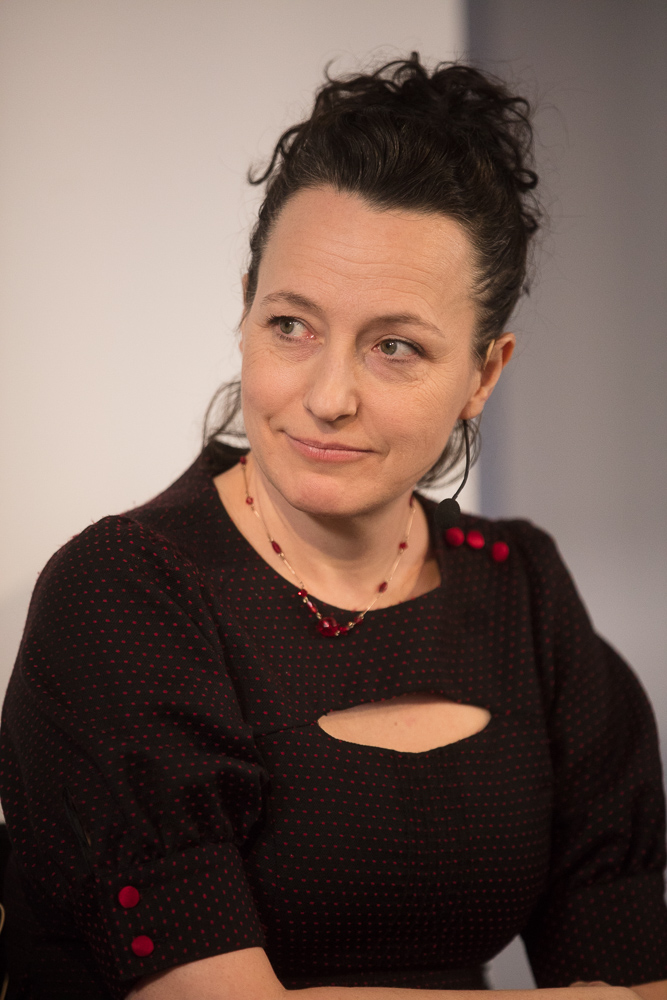
Mellor recalled the first time she was directing and told the DoP that she wanted ‘the actress to reach down in one shot, get the gun, bring it out of her skirt and point it. He told me: “You can’t do that, it’ll have to be a series of cuts.”
‘I thought, right, he definitely knows his stuff. But the script advisor said: “He’s male, you’re female, do it your way.”’
Hollick pointed out that there was ‘a very established track for young men coming out of film school. They’ve made a couple of short movies that people have liked. They then get a couple of episodes of a series. They’ve often worked as first ADs, so they are very comfortable in that set environment.
‘Before you know it, they’re helming an original show. There are lots of really talented male directors who’ve gone down this route.
‘This is not happening for female directors or for directors of colour because it’s not the norm, they are seen as other. To deal with this, we need to take some very special action – instead of shadowing schemes, broadcasters have to free up enough money to allow production companies to schedule in a block where a director can direct one episode.
‘Try somebody out. Broadcasters need to put money in. We would make it work.’
Class is key
Manda Levin: ‘We’re not even nearly there on class. You can wrap up nearly every issue to do with diversity if you deal with class. Film and TV are still home to privilege and entitlement. If we tackle class, we could change the atmosphere on set.’
Lesley Sharp: ‘We are banjaxed by our class system. It’s everywhere, and I also think we’re banjaxed by the north-south divide. There is a huge amount of misunderstanding and suspicion and snobbery about the way people sound and the doors that this opens for them.
‘It’s everywhere, not just in our industry, it seeps into all the big institutions. It’s in politics, in law, education.… People are laughed at because of the way they speak.’
‘Is older the new younger? A debate on women and age diversity in television’ was held at The Hospital Club in central London on 22 January. The producer was Vicky Fairclough.

